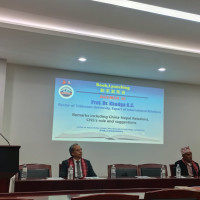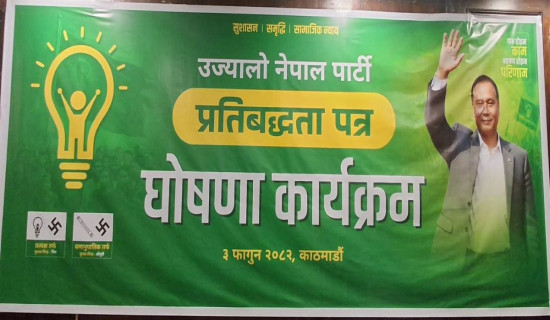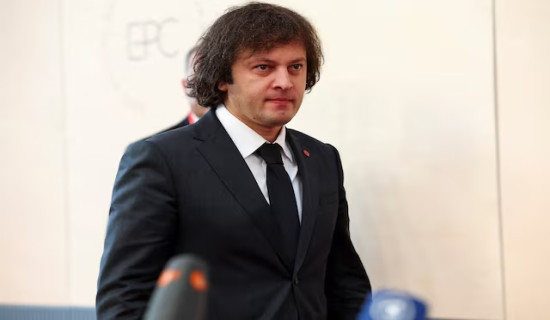- Monday, 16 February 2026
Modi inaugurates new parliament building as part of New Delhi's makeover
NEW DELHI, May 28: Prime Minister Narendra Modi inaugurated India's new parliament building on Sunday, a modern complex which is part of his Hindu nationalist government's grand plan to give a makeover to the British colonial-era architecture in the nation's capital.
The inauguration, and the ongoing revamp of the heart of New Delhi based on Indian culture, traditions, and symbols, come a year before parliamentary elections in which Modi's Bharatiya Janata Party (BJP) will pitch its strong Hindu nationalist credentials, and its performance in office over the last decade, to seek a third term.
Early in the morning, Modi held traditional prayers outside the complex in a ceremony that was also attended by top cabinet ministers. He then lit a traditional lamp inside the parliament.
Later, the prime minister entered parliament to loud cheers from guests, government officials and lawmakers, with many welcoming him with a chant of "Modi, Modi".
"This new complex will be evidence of self-reliant India," he said in an address.
The event was boycotted by 20 opposition parties who said Modi had violated protocol to inaugurate the new complex and grab the spotlight when it should have been done by the president, the highest executive of the country.
"To open a new parliament building without the opposition does not mean there is a democracy in the country. It's an incomplete event," Supriya Sule, an opposition leader, told news agency ANI.
During the inauguration ceremony, a parliament official read out a note written by President Droupadi Murmu in which she welcomed Modi had inaugurated the complex.
The Modi government has rejected the opposition argument, saying no protocol has been violated and that the prime minister respects the constitutional head of the country.
The new parliament complex is the centrepiece of a $2.4 billion project aimed at eclipsing the significance of colonial-era buildings in the capital's centre, paving the way for modern buildings with a distinct Indian identity.
Late Saturday, Modi on Twitter said the new parliament is "truly a beacon of our democracy".
Besides modern technology, the new parliament has a total of 1,272 seats in two chambers, nearly 500 more than the old building, and at least three times as much space to accommodate new lawmakers in the world's most populous nation.
The triangular-shaped parliament complex is just across from the old, circular heritage building built by British architects Edwin Lutyens and Herbert Baker in 1927, two decades before India's independence.
The old parliament will be converted into a museum.
















